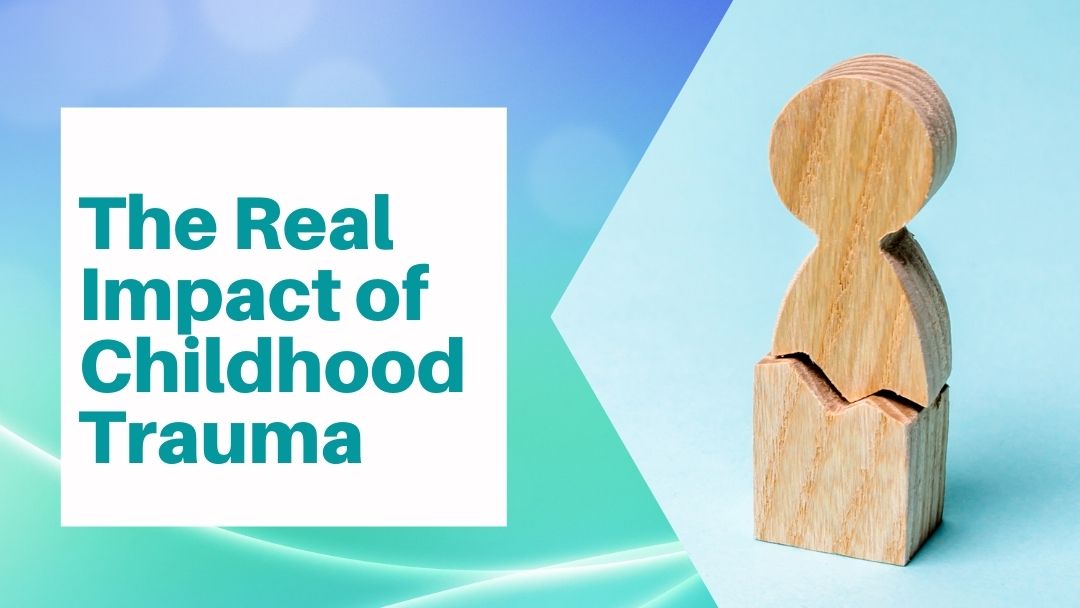When I’m working with clients or mentoring certification students and other practitioners, there’s a saying I often use:“Find the first or the worst.”
By first and worst, I’m referring to either the earliest memory a person has of a particular experience, feeling, or problem, or the most traumatic or dramatic memory a person has of the same particular experience, feeling, or problem. Oftentimes, whether the first or the worst, those memories are rooted in childhood and can shed light, if not identify, core issues.
You may already know that energy modalities like EFT Tapping, Matrix Reimprinting, and others often focus on early childhood memories and experiences as we work to discover core issues and the roots to our clients’ struggles, but do you know why it’s so important for us to address childhood events? It isn’t just because it can help our clients feel better or find peace with their past, even though those are pretty important reasons too!
It’s because those painful childhood memories aren’t limited to childhood– decades of research has linked childhood trauma to chronic pain, autoimmune disorders, mental health issues, relationship struggles, and even a markedly lower tolerance for stress and difficulty in adulthood– all the things our clients often come to us for!
We now know that painful or traumatic events in childhood directly impact how the brain develops and prime our nervous systems to chronically overreact to sensory input in the future. This has been linked to negative outcomes for both physically and emotional health in adulthood, including:
Lower Immune Function: For every point a person scores on the scale of Adverse Childhood Events (A.C.E), they are 20% more likely to develop an autoimmune condition in adulthood, and more likely to be hospitalized for complications related to autoimmune conditions. This is due to an increased inflammatory response in the body that stems from early childhood stressors (Psychosom Med. 2009 Feb; 71(2): 243–250)
Increased Mental Health Issues: The higher a person’s A.C.E. score, the more likely they are to develop mental health issues in adulthood, especially depression and anxiety. Research has consistently confirmed that when the developing brain is exposed to stress, multiple brain structures and functions are impaired (Eur Arch Psychiatry Clin Neurosci. 2006 Apr; 256(3): 174–186.)
Lower Tolerance for Stress & Increased Perception of Danger: As brains develop, they do so to include what is often called a “default mode network.” This particular brain structure allows us to filter out the things that are deserving of attention and what is not, in order to make measured decisions about what we need to do next in any given scenario. The default mode network is linked to our ability to rest and recover from stress. However, in the presence of trauma in childhood, the connection between the prefrontal cortex and the amygdala is weakened, causing the individual to respond to stimuli– such as pain, stress, touch, and threats – with hyperarousal and dysregulation. (https://doi.org/10.1073/pnas.1310766110)
Even traditional treatments recommend addressing those affected by the long-term impact of childhood trauma emphasize calming the central nervous system. We already know that EFT Tapping sends calming signals to the amygdala, making it an effective tool at doing just that, but so many energy techniques empower us to address and lessen the effects of adverse childhood events. We have the ability to help our clients create new life experiences, which do change biology. And, most importantly, we can use techniques like EFT, Matrix Reimprinting, Walls Into Doorways and more to help our clients alter their emotional perception and biological link to the trauma and stress from their childhood.
Some questions to ask your clients to help identify impactful childhood memories (keep your clients tapping as they think because it helps bring up the memories:
- When is the earliest time you can remember feeling this way?
- If you had to help someone else understand your experience, what would be the best example you could give of this problem?
- How did your family of origin / parents feel about you / this problem? How did you know that was the way they felt?
- Complete this sentence: “The care I received as a child was…”
- How would you describe most of your childhood memories? (ie: fond, pleasant, intense, difficult, painful…)
- Do you remember anyone else in your household experiencing the same problem you’re experiencing now? What was their response? How is it different from / similar to your experience now?
- What did you learn about yourself or the world when you were a child that lent itself to your current problem / state?
You can access the A.C.E. test for free here: https://www.npr.org/sections/health-shots/2015/03/02/387007941/take-the-ace-quiz-and-learn-what-it-does-and-doesnt-mean
If you’re interested in additional techniques to help you or your clients address childhood trauma and adverse childhood events, you may be interested in pursuing the full EFT Practitioner Certification, recognized by EFT International and the National Center for the Certification of Energy Practitioners, which thoroughly covers how to use EFT to find and clear negative memories, core issues, and childhood events, or Walls Into Doorways– a complementary modality designed to clear the root causes of issues all at once in a powerful, guided-visualization styled session.
